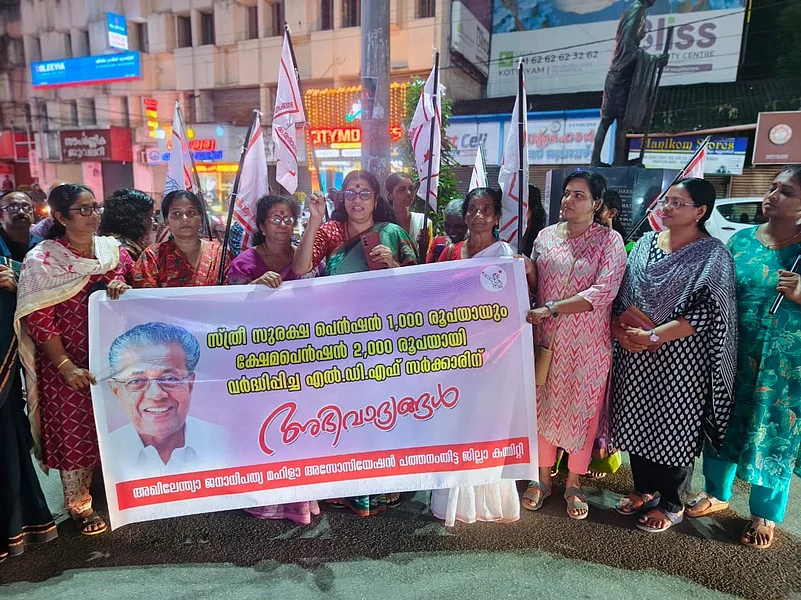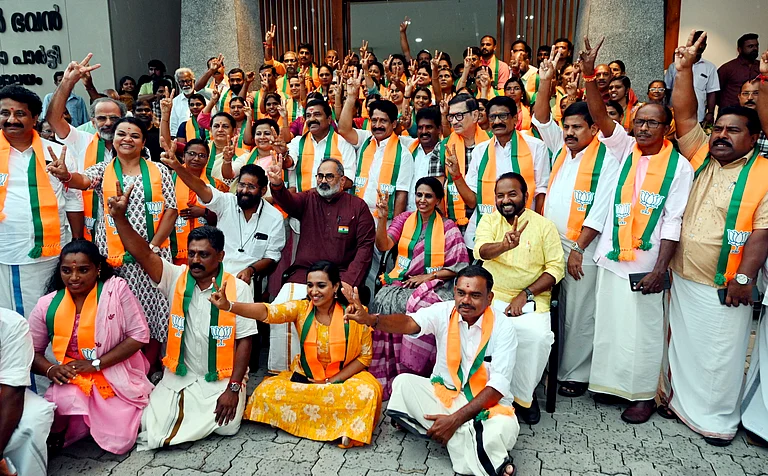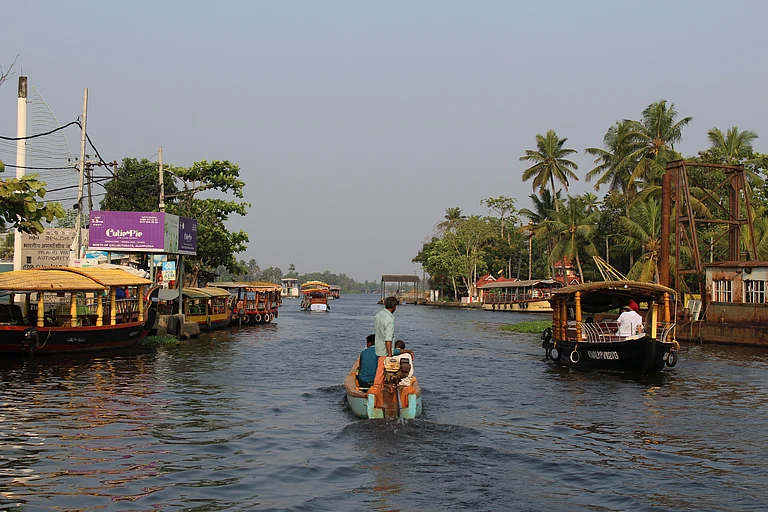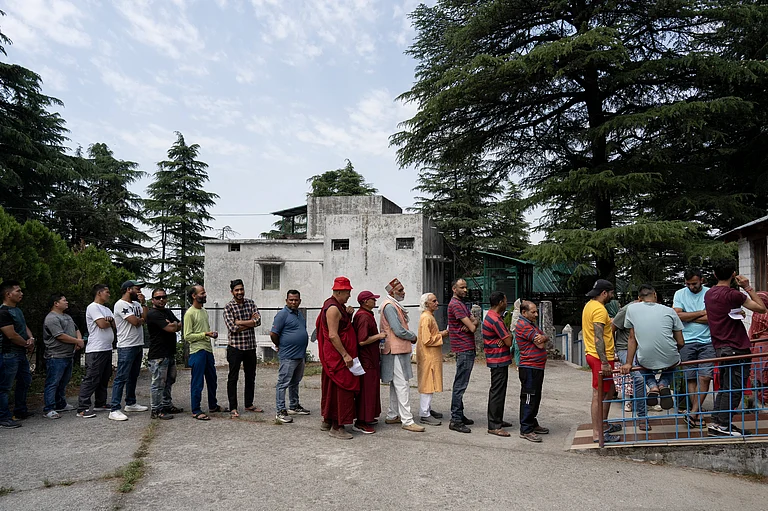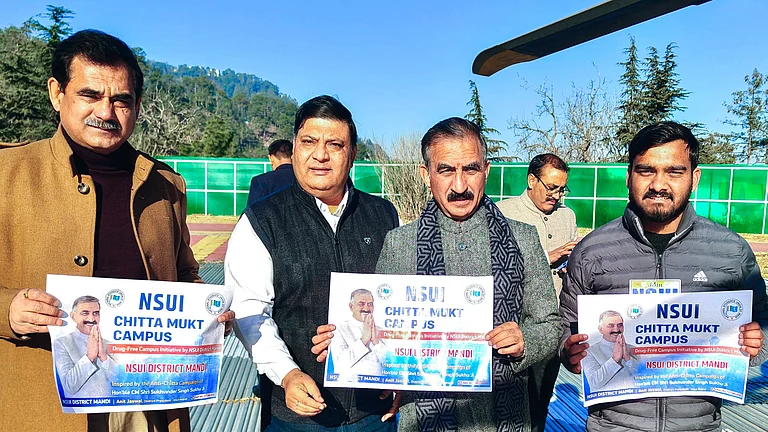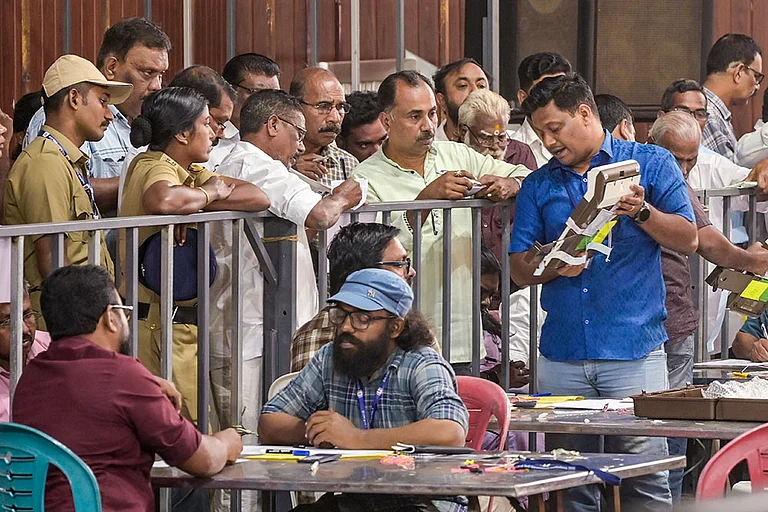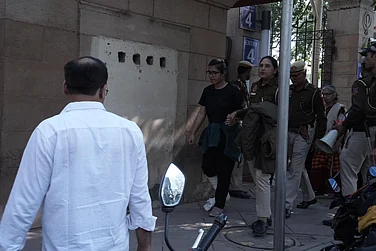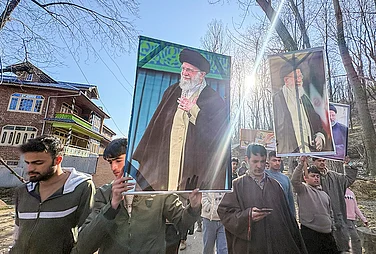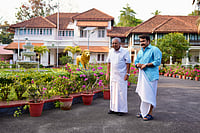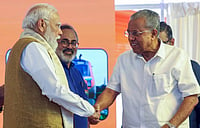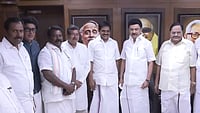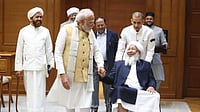
Kerala’s decentralised governance model has opened the door for thousands of women to take leadership roles in local bodies.
For many first-time women representatives, local body elections have been life-changing, transforming them into confident leaders with wider political responsibilities.
Despite initial hurdles such as gender bias and mansplaining, women leaders have steadily earned community trust, illustrating how grassroots politics can drive lasting social change
Sajidath, the president of a grama panchayat in Kozhikode district, is busy addressing various issues raised by local residents while preparing for a party meeting ahead of the local body elections. Although she is not contesting this time, she remains active on the campaign trail, showcasing the panchayat’s achievements under her leadership and outlining her party’s plans if re-elected.
She became president of the Kizhakoth grama panchayat in 2023 despite having no prior political experience. Sajidath is one of about 400 women panchayat presidents in Kerala leading the State’s decentralised development. “Ours is a UDF-ruled panchayat, but we have ensured support from all political parties in the development process,” she says.
Empowerment Through Political Participation
A 50 per cent reservation for women in Kerala’s civic bodies came into effect in 2010, when CPI(M) leader V.S. Achuthanandan was the Chief Minister. The reform marked a turning point in the State’s decentralised governance model. What began as a structural intervention soon evolved into a social transformation: each election cycle since has brought more women into public life, with many not only chairing panchayats but also contesting and winning in general, non-reserved seats.
Kerala’s long-standing emphasis on social development — higher literacy rates, stronger public health systems, and active grassroots mobilisation — created fertile ground for women to step into governance. The Kudumbashree mission, with its extensive network of women’s neighbourhood groups, further nurtured political confidence and leadership skills at the community level. Over time, these networks have become pipelines for women entering elected office.
“Women’s participation in local bodies has a history of 30 years in Kerala, but after the 2010 local body elections, it increased manifold. This has transformed Kerala — and the lives of women here,” says P.K. Sreemathy, president of the All-India Democratic Women’s Association and CPI(M) central committee member. “As the first president of a district panchayat, I witnessed firsthand how women overcame challenges both inside and outside the home.”
Today, Kerala has more than 400 women panchayat presidents leading development initiatives, managing budgets, and shaping local policy. Many of them — like Sajidath — entered politics with no prior experience but have become key actors in grassroots planning, welfare implementation, and disaster response. Their presence has not only broadened the scope of women’s political representation but has also altered the nature of local governance: issues such as housing, health, gender-based violence, livelihood security, and public services now receive greater attention and continuity.
Sreemathy, who later served as an MP and a minister in Kerala, describes this shift as one of the State’s most significant social movements. “When women lead, development becomes more inclusive,” she says. “The changes we see today in our panchayats are the result of thousands of women stepping forward, bringing their lived experience into governance.”
Deepening empowerment
Many women panchayat presidents have gone beyond routine governance to launch programmes specifically aimed at empowering women in their communities. Najmaneesa, one such president, says her greatest achievement has been guiding the panchayat towards strengthening the financial independence of ordinary women.
“During our tenure, we ensured support for women who wanted to buy autorickshaws for self-employment,” she says. “We also introduced plans to promote entrepreneurship among women. For proposals that met the panchayat’s criteria, we offered a 50 per cent subsidy to help them get started.”
These interventions, she adds, were designed to help women move from informal, low-paid work to more stable and dignified livelihoods — a shift increasingly evident in many panchayats across the State.
For K. Rathi, president of the Kannapuram grama panchayat in Kannur district, the achievement has been remarkable. Under her leadership, the panchayat became the first in the country to be declared cancer-free — a milestone later featured in a World Health Organisation publication. Spread across 14.39 square kilometres, with 4,531 households and over 18,000 residents, Kannapuram has been running a sustained cancer awareness and screening campaign since 2016.
When Rathi took charge in 2021, the programme gained renewed momentum. In partnership with the Malabar Cancer Centre, a leading cancer research institute in Thalassery, the panchayat began conducting regular screenings for residents, strengthening early detection and prevention efforts. To ensure the programme was inclusive, the panchayat also reached out to migrant workers from northern states. “For this, we conducted an awareness campaign in Hindi,” Rathi said.
Politics Changes Life
For some women, local body elections have been transformative. Anas Rosna Steffi, a student from a tribal community who never imagined entering politics, says her journey began by accident. “I was preparing for the UPSC exam five years ago, but during the COVID-19 restrictions, I had to return home to Wayanad. It was the time of the local body elections, and some of my father’s friends in the CPI(M) approached me and encouraged me to contest. I won—and was elected panchayat president.”
The experience, she says, changed her life. “With the help of my comrades, I ensured that all eligible families who owned land received houses through the Life Mission scheme. There are still landless families in the panchayat, and something must be done for them too.” While people were generally cooperative, she recalls facing “a lot of mansplaining” in the initial months, though attitudes eventually shifted. Recognising her leadership, the CPI(M) has now fielded her for a district panchayat seat.
Kerala’s celebrated decentralisation model—often cited by academics for its deep grassroots participation—owes much to the involvement and leadership of women. Local body elections have played a key role in enabling this, helping expand and deepen women’s empowerment across the state.







